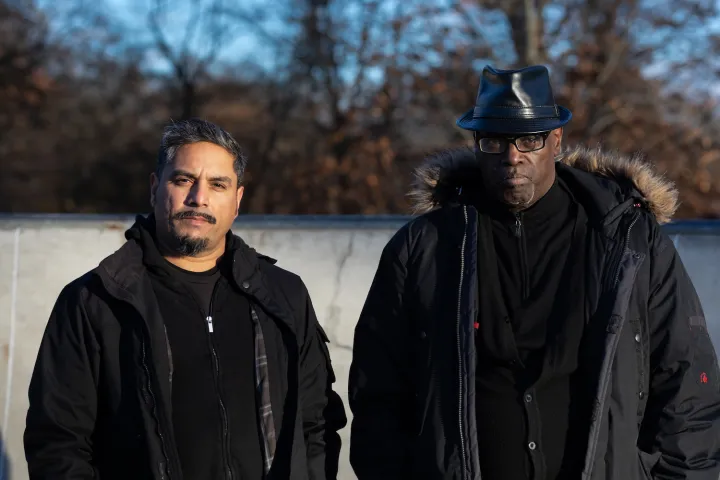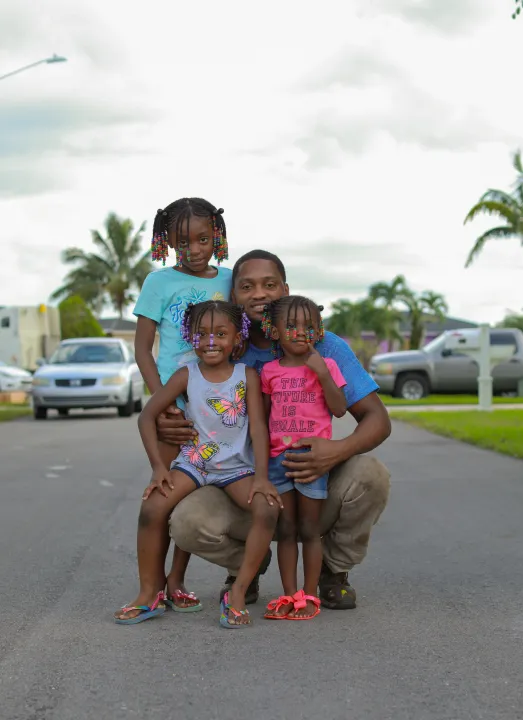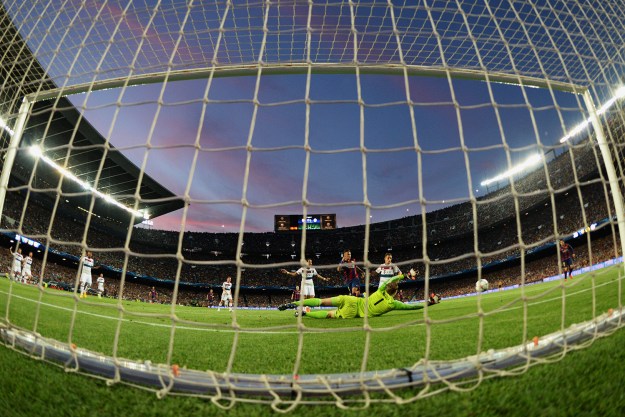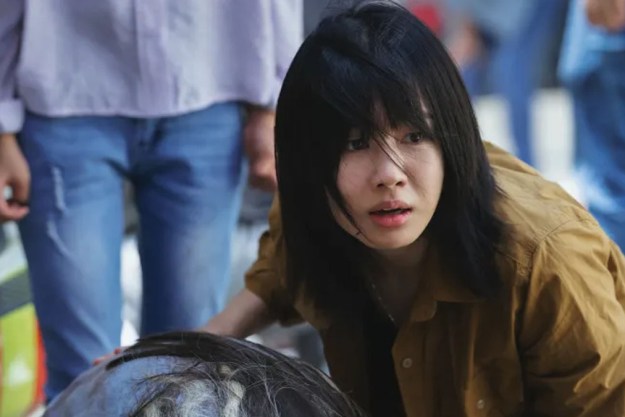The city of Pahokee, Florida, is perhaps best known for its high school football team. With less than 6,000 residents, the rural city has produced numerous football players who went on to play in the NFL, including Anquan Boldin Sr., Janoris Jenkins, and Rickey Jackson. Pahokee is known as “the Muck” because of the nutrient-rich soil on the shores of Lake Okeechobee. And while football may draw the headlines, Pahokee is a city with a long track record of triumph, tradition, and tragedy.
Filmmaker Ira Mckinley sets out to paint his hometown of Pahokee in a new light with the upcoming documentary Outta the Muck. Along with his co-director/producer Bhawin Suchak, Mckinley returns to Pahokee to reconnect with his niece and nephew as he explores his family’s history and chronicles the lives of the city’s residents. Through intimate stories of love and despair, Outta the Muck depicts a new perspective on Pahokee, a city built on Black achievement, resilience, and appreciation for its community.
In an interview with Digital Trends, Mckinley and Suchak discuss the seven-year journey behind Outta the Muck, the biggest misconceptions about Pahokee, and the messages to be taken away from the film.

Note: This interview has been edited for length and clarity.
Digital Trends: This entire process has been a seven-year-long journey. Has it hit you that the world will soon see this film?
Bhawin Suchak: I think the process of making a documentary feature is a long one that includes a lot of development and research work before you actually start producing. And obviously, with the documentary, nothing’s scripted, right? We have to come up with the story and the concept. Ira and I, this is our second film working together.
We worked on a film called The Throwaways that we released in 2014. Then Ira had this idea that he wanted to really pursue another film about his family’s history. I was at first reluctant because it just takes so much work. I was feeling really overwhelmed and tired. I didn’t want to make another feature doc, to be honest with you [laughs], but I was convinced because Ira had a really incredible story.
It’s very exciting. We’ve been on the festival circuit and doing community tours with the film, so we’ve been showing it to audiences in person. Yeah, I’m very excited because this is such a powerful story that comes at a perfect time in this country’s history. The stories of Black communities and the historical context they have come up through and how history has impacted the present times, I think, are really woven into this in a beautiful way.
I think it comes at a time when you’re about to have the Super Bowl, so football is in people’s consciousness. I think this film shows you that while football is, at this point, a very high-level sport, and there’s a lot of money involved when you look at it from the community perspective, it’s also a place for people to come together and build unity. That’s what is powerful about the role that football plays in the community.
Ira, take me through the origins of exploring your family through Outta the Muck.
Ira Mckinley: While I was doing The Throwaways, things started popping up. When you’re doing research like I was doing and working on the first film, secondary things were popping up, and articles were being written. There was a book called Muck City that came out. The book had my cousin in it. It was an opportunity. The last time I was in that area was when we buried my father. [My movie], The Throwaways, it’s police brutality and mass incarceration, so the things that we were working on were about social justice.
The opportunity arose to spread a spotlight on a place that has produced many NFL players, but it’s still poor. The history goes back a hundred years, like Zora Neale Hurston’s Their Eyes Were Watching God, the hurricane, [and] Harvest of Shame, the Edward R. Murrow documentary in 1960. All that came up while I was doing The Throwaways, and I thought it was a great opportunity for us, especially me, to reconnect. [I wanted to] show that story of me reconnecting to this place, a historical place [with] a lot of history, and going back there after 35 years of being gone. There are whole generations [there]. My niece, whom we featured in there, her son was just a baby when I left. When I came back, he was grown [with] kids. There are other kids, you know, people I haven’t met. It was a chance to tell that story.
We went there in 2015, and we saw the excitement. Then the next year, when we were in production, which was 2016, they [the Pahokee football team] were undefeated. We couldn’t get a better script than what we’re trying to do. The high school football players went undefeated. They won a state championship. We were there through the whole thing, just trying to raise money to go back and forth, back and forth, you know.
We didn’t have anybody. We had to do it through crowdfunding and all this other stuff. Asking people for money just so we can go down there and shoot. I had the story, but Bhawin and his people from Youth FX were the ones that came and documented the story. That was the partnership.

Bhawin, you spent so much time meeting the people of Pahokee. There’s this idea in the film about perception versus reality in Pahokee. As someone who’s not from Pahokee, what do you believe is the biggest misconception about this community?
Suchak: It’s interesting because I think at the beginning of the project, that was really important for us to build that relationship and make sure that people knew what our intentions were coming down there. There have been a lot of films, TV shows, and spots done about Pahokee that just hyperfocuses on poverty and the violence and all these aspects of the community. When you’re down there and you spend time, it doesn’t really exist in any way that’s any different from any other place.
As a matter of fact, in some ways, I think the biggest misconception is people don’t understand how tight and connected the community is and how people really look out for each other. I think what happens is when you have a lack of resources, and the structures of the county government and the state government have basically left you without resources, you learn how to build them yourselves. You learn how to become self-determined.
To me, that is one of the biggest misconceptions. You know, people are poor, they don’t care, [and] they’re just surviving and struggling. But people are thriving there [too]. It just doesn’t look like it looks in a more mainstream area that has a lot of resources. People have to really support each other, and everyone looks out for each other and cares about each other. What we try to show in the film is that Ira’s family, specifically [Ira’s niece and nephew] Bridget and Alvin, are really the centers of gravity in the community. People are drawn to them because they care really deeply about each other, the town, and the history because they’ve been there for seven generations.
The other part is that a lot of people don’t tell stories of who stays in these communities. You hear a lot of stories about getting out of places like Pahokee and leaving. Yes, there are not a lot of resources and opportunities, so for certain people, you want to leave. The question that I’m always questioning is who stays. Who are the people that are maintaining the history? That’s Bridget. That’s Alvin. You see in the film these scenes of cookouts and gatherings. That’s what holds everyone together.
The biggest misconception in a place like that is, “Well, they don’t have anything, and they’re poor.” But you don’t think about what they’re rich in. They’re rich in resources. They’re rich in the land — growing their own fruits and vegetables, fishing from that lake. The biggest one to me is that togetherness. They come together and celebrate each other’s lives and look out for each other in a way that is hard to find in a bigger city and a bigger community. You don’t have that togetherness and that sense of looking out for each other’s backs. “Oh, the kids are over at your house? Well, we’re going to keep an eye on your kids.” You know everybody, so that was really beautiful for me to experience.
It made me want to reconnect with my own history and my family in a way that was really deeper and more involved and extensive than I ever thought before. I hope it sparks that for people that see the film. That they need to really stay connected with their own family history. Also, to not underestimate towns like Pahokee. People count them out and only care about football, but there’s more to that town than just football.
Throughout this process, were there any new things or discoveries you were surprised to learn about your family?
Mckinley: The connection to football. Burt Reynolds did movies called Gator and White Lightning, and he mentions the “Muck Boys.” There is a scene when he was talking, I think to Jerry Reed, in the movie. He’s coming out of prison. His dad lives in a town like Pahokee, and he’s a whiskey runner, so he’s running whiskey, like moonshine. They talk about suffering, and this is back in the ’70s when he [Reynolds] did White Lightning, Gator, and The Longest Yard. They played football, and the people they used were people out of the muck. It wasn’t told in the story, but when you research it, you see that Burt Reynolds talked about it [the muck]. Zora Neale Hurston talked about it in a different aspect of history and perseverance.
Then 30 years later, Edward R. Murrow talked about migration, and that’s how my family moved to New York. I wasn’t born in Pahokee, but my mother and father met there. That’s the significance of the story. If it wasn’t for Pahokee, there wouldn’t be no me. My mother and father met in that town and used to date up there. It was a different type of thing. I had to take myself back to that time. It was Jim Crow. You couldn’t do anything.
You see what’s happening now with [Florida Gov. Ron] DeSantis trying to kill education. This is a story of what has been happening for centuries there. You wonder why they want to kill the education. Then you understand that it’s a slave-type mentality. The sugar mills use these people and don’t give them the best wages, but they give them enough wages that they’re better off than the rest of the population.
So they chase rabbits. They fish like Bhawin was saying. It’s a country town, and ‘dem boys are country with different aspects, but they survive. They eat healthily because they got mango. They got avocados [and] bananas. They got everything. This land is so fertile. You see the price of eggs, and [if] you go down to Pahokee, you see chickens running wild in the street. They’re not looking at the eggs like that. You find out where those roosters and chickens are laying and get their eggs. That’s the reason why these people do that. You realize that even though they don’t have much, they have a lot. They have a lot. It’s just not what we’re used to, growing up in the big cities.
We briefly touched on the football team and its importance to the community. For someone who doesn’t understand the importance of how a local sports team could provide so much to the community, what does football mean to Pahokee?
Mckinley: One of the first or second football scenes we filmed was when a New Jersey state champion [team], a bigger school, came [to Pahokee]. They were talking all this mess of how they’re going to beat Pahokee [Laughs]. It was funny to watch because we’re sitting up there, we’re hot, we’re sweating, and we’re doing the work that these kids are doing, but we have cameras. We’re going into this tropical climate, and New Jersey is thinking they’re going to come and play these guys in their hometown and not train. They went to Miami University to train with the AC and all this other stuff.
Then they came with this busload of people, with this entourage and the state troopers. Me and Bhawin were filming them. I don’t think this is in the scene, but we were freaking out like, “Yo, look at them.” It took them four hours to play the game because everybody started cramping up. This was in September in Florida. They didn’t know that this weather and heat would take a toll on you. The kids trained in this every day. They trained in this type of heat and everything every day.
We saw them [the opposing team] collapsing and the coaches collapsing. The people were like, “Oh, how are they doing it?” After the game, they thought they were going to win and have this big celebration. That was canceled [laughs]. To us, that was funny. They canceled everything after talking all this mess on social media. You come on down here, and you want to play down in this heat, [then] you got to recognize these boys play here. They train in this. If you’re going to the University of Miami and you’re in AC, you’re not prepared to play in the muck. That’s something that I got. Their training is not the same as the way these kids train, chasing rabbits and doing all this other stuff.

What are the messages you want people to take away from this film?
Suchak: I think there are so many different messages, but I think one that I really hope people see is that these small rural communities have really been one of the threads of the tapestry of this country. I think it’s so overlooked when you think about American history, specifically when you’re talking about Black history in this country, is to look at the struggles and the resilience of communities like Pahokee. When we talk about these small rural towns, it’s almost always in a deficit, a context of what they don’t have. I think it’s unfortunate because I think that these communities are the places where history was made.
In Pahokee, we did some community screenings to preview the film for the community so they could get a sense of what we were doing and the direction. I will tell you that the number one response from people was, “How come we’re not even being taught this history in our own towns.” It was important to him [Ira] to bring the narrative of Zora Neale Hurston into this film. Now you see three documentaries released this year that have woven Zora Neale Hurston’s history, which is amazing because it’s so overdue.
We’ve made a lot of these stories invisible and marginalized as if they were irrelevant. It’s really important for us that this film gets out there because people need to know about Pahokee. They need to meet people like Bridget and Alvin because these are the people who are holding down these communities. We need to celebrate them. And they’re humble people, you know. They’re not out there trying to get famous and have all the spotlight on them. They’re doing incredible work in their communities because they are the ones holding them together. They’re maintaining that history.
The powerful thing about the film is the last moment, where Alvin ties in the history of native people and the runaway slaves and ties it into what Pahokee is today. Pahokee is a place where people care about each other. They take anybody in. Bridget said, “We’ll give you the shirt off our back. We’ll give you food to eat.” That’s something they value because that’s the concept of Southern hospitality brought to you in full screen. Rather than see it as this relic of the past or something hokey, it’s really critical and important, especially in today’s world.
I think after the pandemic, people have talked a lot about mutual aid and community. It’s like a catchphrase. But how does it actually play out? Pahokee exemplifies what it looks like for a community to look out for each other and build community because that’s what they have. They don’t have a lot of riches. They don’t have a lot of resources, but what they have is each other and that land, and living on that land is really something that I think is another piece of it. When you start bringing in the environmental shifts and changes in the climate, people are going to need to learn how to be in relationship with the land in a different way. Those are some of the most powerful connections and things that I hope folks get out of seeing this film.
Outta the Muck makes its broadcast debut on Independent Lens at 10 p.m. ET on February 6. It will also be available to stream on the PBS Video app.
Editors' Recommendations
- Julie Ha and Eugene Yi on making the true crime documentary Free Chol Soo Lee
- Director Muta’Ali on Cassius Clay’s transformation into Muhammad Ali
- The Big Payback’s Erika Alexander and Whitney Dow on reparations in America




